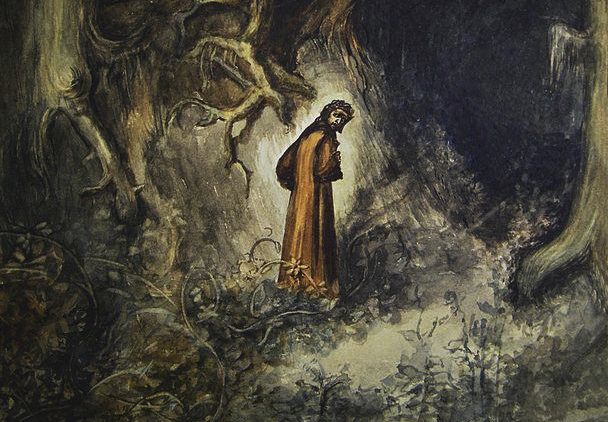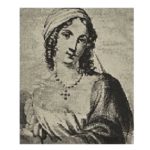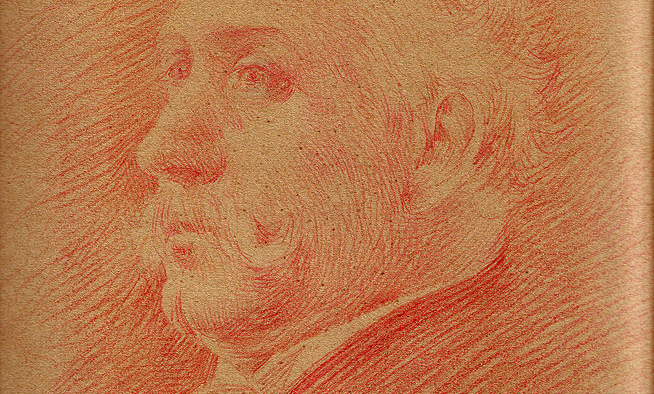
Laura Terracina: For Who is Enemy to Woman
“How dare you raise hand, against so young and beautiful a vision?” With such words does Laura Terracina (1519 – 1577) defend her sex. Born in Naples, she was the most published poet of Italy’s sixteenth century and a feminist before the word “femminista” existed. She was part of a movement of italian Renaissance women writers whose existence is often overlooked in the historical record.
So much were women absent from tellings of the Renaissance and so mixed their lived experience, that it caused Joan Kelly to famously ask “Did women have a Renaissance?” While the answer is complex, the Renaissance saw for the first time in Europe, substantial publication of the works of living female writers. The movement had its heart in Italy and for a time Laura Terracina was one of its most well known poets. It represented a high water mark that was to recede in succeeding centuries.
Laura was of a noble family and though poor herself was gifted with a talent that quickly saw her recognised as an outstanding poet. She was admitted to the prestigious “Accademia degli Incogniti” at age 26 and went on to produce nine volumes of poetry, eight of which were widely published during her lifetime.
Two of Laura Terracina’s works are represented below, together with my English translation. The first is generally about a ethically corrupt world. The second is about violence against women. Both her poems we would today call ‘protest poetry’. A video of these poems produced in 2013 to campaign against violence against women . Such violence is still a far too grim reality today.
I see the world falling (from Rime)
by Laura Terracina (english translation Michael Curtotti)
Veggio il mondo fallir, veggiolo stolto,
e veggio la virtute in abandono,
e che le Muse a vil tenute sono,
tal che l’ingegno mio quasi è sepolto.
I see the world falling, I see it beguiled, I see virtue abandoned .. The Muses contemptuously held, So much, that near is my heart entombed.
Veggio in odio ed invidia tutto involto
il pensier degli amici, e in falso tuono;
veggio tradito il malvagio dal buono,
e tutto a’ nostri danni il ciel rivolto.
I see hate and envy all twisted About thought of friends, and with false song; I see the worthy betrayed by the vile, And all to our loss, the heavens rebel.
Nessuno al ben comun tien fermo il segno,
anzi al suo proprio ognun discorre seco,
mentre ha di vari affetti il petto pregno.
None the standard of common-good hold aloft, But for private gain they speak, And heavy are their hearts with motives dark.
Io veggio e nel veder tengo odio meco,
tal che vorrei vedermi per disdegno
o me senz’occhi o tutto ‘l mondo cieco.
I see and in seeing hold even self hateful, And am so repulsed that I would, See myself sightless, or the world entire, blind.

Chi Nemico è di Donna – For Who is Enemy to Woman (from Canto V of Discorso sopra il Principio di Tutti I Canti di Orlando Furioso)
by Laura Terracina (english translation Michael Curtotti)
Ben vi percuote il cor d’invidia il telo,
Che tenete le donne si vilmente.
A la femmina il maschio non fa guerra
Tutti gli altri animali in terra.
Envy's arrow must have deeply pierced your heart, That with such vileness woman you do hold. Against his woman, the male does not wage war, In all other creatures of the world.
O nimico del cielo, e di natura,
Come hai baldanza tu di por la mano
Sopra di bella & giovenil figura?
Onde ti vien questo tuo ardir si strano?
O enemy of heaven, and of nature, With what boldness you raise your hand, Against so young and beautiful a vision, Where comes this, your so perverse desire?
Ti fè de la tua costa il buon fattore
Uscir la donna con si bel disegno,
Acciò, che d’una fede, e d’uno amore
Voi foste uniti in questo regno!
Of your rib, the divine and goodly maker, Of beautiful design, brought forth woman, So that, of one shared faith, and one shared love, In this worldly kingdom, you would be united!
Ben ti poi annoverar, con darti vanto
Tra crudeli Leoni, e maligni Orsi,
Quantunque di natura sia mordace
A la femina il maschio non la face.
Well may you claim glory and pride, Among lions cruel, and creatures evil, Yet however by nature violent they be, To the female, their male forbears.
Ne sarai forse primo, ne secondo,
Darai a tuo malgrado quel che dei:
Deh vivi tu con la tua donna in pace:
La Leonessa appresso il Leon giace.
You are not perhaps the first, nor second,
Who to your own ill, will do as you will,
But hold. In peace with your lady live:
For close by the Lion, the Lioness doth lie.
Video recital and song of ‘Chi Nemico è di Donna’
Notes and Sources
Updated 13 October 2024.
Virginia Cox, Women’s Writing in Italy 1400-1600, the John Hopkins University Press Baltimore 2008, pp xi and following
See Chapter 6 – Laura Terracina Feminist in Irma B. Jaffe, Gernando Colombardo, Shining Eyes and Cruel Fortune – The Lives and Loves of Italian Renaissance Women Poets, Fordham University Press New York 2002, pp 163 and following
Amelia Papworth, A Forgotten Bestselling Author: Laura Terracina in Early Modern Naples, University of Cambridge, PhD thesis 2018
Passages above from Laura Terracina’s poetry were taken from a video and musical presentation of her poetry produced in 2013 and which appears in the article Women’s Work.








